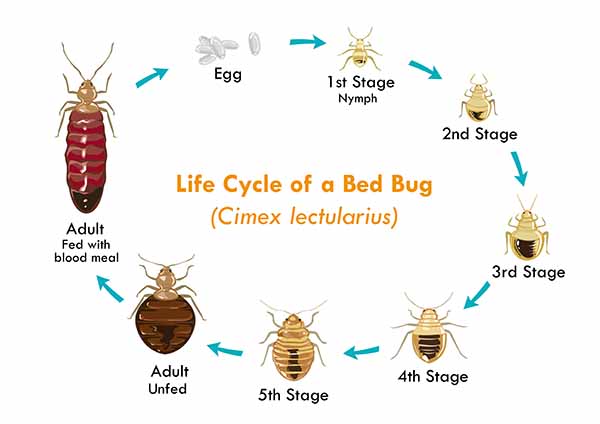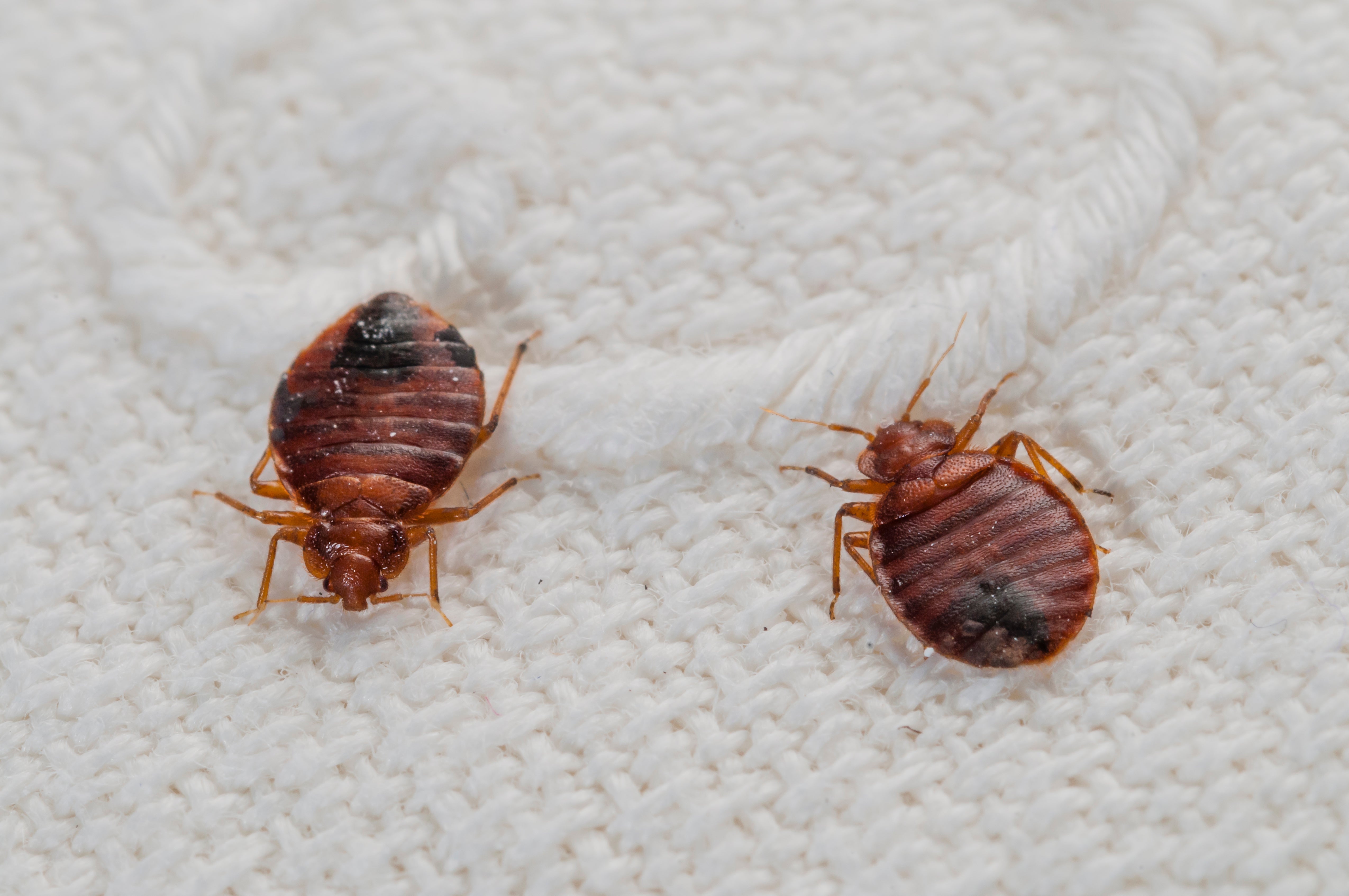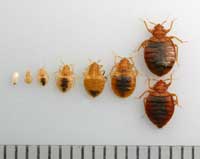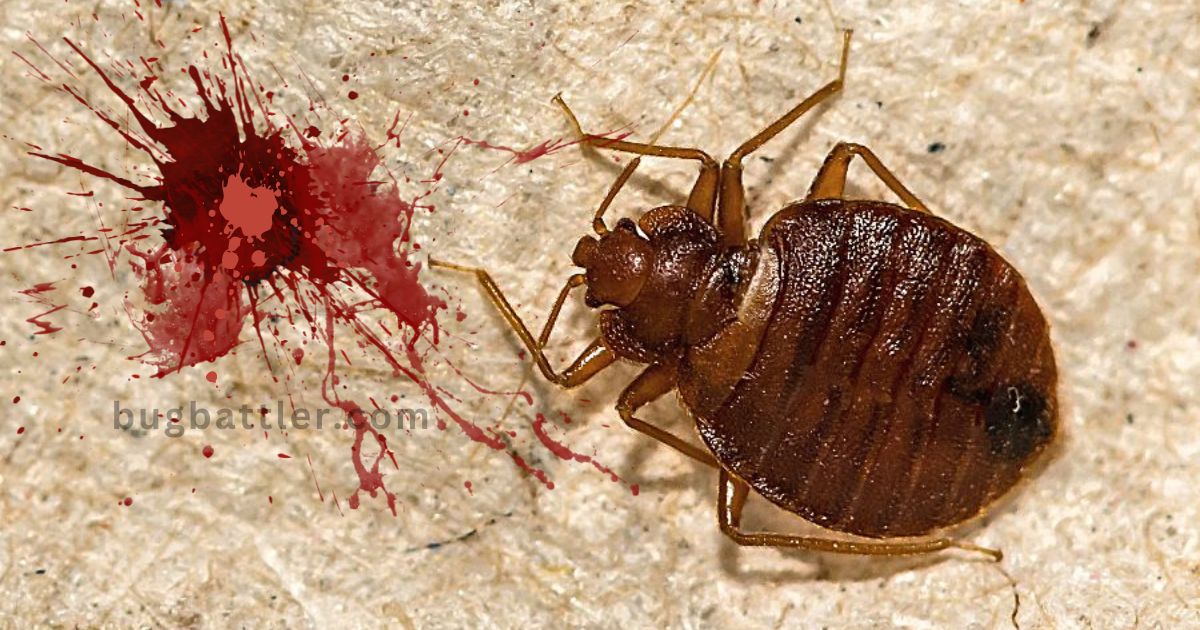Bed bugs can survive without blood for about 20 to 400 days, depending on their life stage. However, adult bed bugs can live the longest without a blood meal.
Dealing with a bed bug infestation can be a frustrating and stressful experience. These tiny pests are resilient and can survive for extended periods without feeding. Understanding how long bed bugs can live without blood is crucial when devising a strategy to eliminate them from your home.
We will explore the factors that influence the survival time of bed bugs without blood and discuss effective methods to eradicate them from your living space. By the end of this read, you will have a comprehensive understanding of how to combat these resilient pests and achieve a bed bug-free environment.
Life Cycle Of Bed Bugs
Bed bugs can survive without blood for several months, as they can go into a dormant state during their life cycle. Under favorable conditions, bed bugs can take around 20 days to develop from egg to adult, and can live up to a year or longer without a blood meal.
The life cycle of bed bugs is essential to understanding their behavior and how to effectively control infestations. From eggs to nymphs and adults, each stage comes with specific characteristics that impact their ability to survive without blood.Egg Stage
Bed bugs start their life cycle as eggs, which are tiny and usually laid in clusters. These eggs are about 1mm long and are white in color, making them difficult to spot. Eggs typically hatch in about 6 to 10 days under optimal conditions.Nymph Stages
After hatching, bed bugs enter the nymph stage. Nymphs resemble smaller versions of adult bed bugs, and they go through several molts as they grow. It takes blood meals to progress through each molt, and during this stage, bed bugs are more vulnerable to environmental stressors and may not survive for long without a host.Adult Stage
Once bed bugs reach adulthood, they are about 5-7mm in length and can survive for several months without feeding. However, their lifespan is significantly reduced without access to blood, as they rely on it for reproduction and overall energy. Adult bed bugs must feed approximately every 2-3 weeks to remain reproductively active.Understanding the life cycle of bed bugs is crucial for effective pest management. By knowing how long bed bugs can survive without feeding, it’s possible to implement targeted strategies for eradication.Survival Without Blood
Bed bugs are known for their persistence and resilience, even in the absence of a blood meal. Understanding the duration and factors affecting their survival without blood is crucial for effective pest control. In this article, we delve into the topic of bed bug survival without blood and explore the duration in different life stages and the factors influencing their ability to endure without a blood meal.
Duration In Different Life Stages
Egg Stage: Bed bug eggs can survive for five months to a year without a blood meal, making them particularly challenging to eradicate.
Nymph Stage: Nymphs, or immature bed bugs, can survive several months without feeding, depending on environmental conditions.
Adult Stage: Adult bed bugs are capable of surviving without blood for up to six months, enabling them to endure in the absence of a host.
Factors Affecting Survival
Temperature: Bed bugs thrive in moderate temperatures, with their survival without blood prolonged in warmer environments.
Humidity: High humidity can support prolonged survival without blood, while low humidity levels may diminish their endurance.
Life Stage: The duration of survival without blood varies across different life stages, with eggs exhibiting the highest resilience.
Access to Shelter: Bed bugs can withstand longer periods without blood when they have access to conducive hiding places and nesting sites.
Symptoms Of Starvation
When bed bugs are deprived of blood, they exhibit noticeable symptoms of starvation. These symptoms are crucial in understanding how long bed bugs can survive without feeding.
Physical Changes In Bed Bugs
- Shriveled bodies due to lack of sustenance.
- Flat and deflated appearance as they become emaciated.
- Visible color changes such as turning from reddish-brown to brown or black.
Behavioral Changes
- Reduced activity levels, leading to sluggish movements.
- Increased tendency to hide in cracks and crevices.
- Aggregation behavior as they congregate in search of food.

Credit: allergystore.com
Methods Of Starvation
In order to effectively eliminate a bed bug problem, it is important to understand the methods of starvation that can be employed. By depriving bed bugs of their primary food source, which is blood, it is possible to gradually reduce their population and eventually eliminate them entirely.
Natural Starvation
Bed bugs are highly dependent on human or animal blood for their survival. Without a blood meal, their lifespan is significantly reduced. In fact, adult bed bugs can typically survive for about 2 to 3 months without a blood meal, while nymphs (young bed bugs) can survive for several weeks. However, it is important to note that bed bugs can enter a state of dormant, called diapause, during periods of extended starvation. During diapause, which can last for several months, bed bugs can survive even without a blood meal.
Artificial Starvation Techniques
To accelerate the process of starvation and eliminate bed bugs more quickly, several artificial methods can be employed:
- Heat Treatment: Exposing bed bug-infested items or areas to high temperatures, typically above 113°F (45°C), can be an effective way to kill bed bugs and their eggs. Bed bugs cannot withstand extreme heat, and prolonged exposure can quickly lead to their demise.
- Freezing: Extreme cold can also be used to kill bed bugs. Items infested with bed bugs can be placed in a freezer at temperatures below 0°F (-18°C) for a period of time to ensure the elimination of these pests. However, it is important to note that freezing may not be as effective for large infestations or hard-to-reach areas.
- Insecticide Application: The use of insecticides can also be an effective method to starve bed bugs. By applying insecticides to areas where bed bugs hide, such as cracks, crevices, and furniture joints, their access to blood sources can be restricted, leading to starvation.
- Vacuuming: Regularly vacuuming infested areas can help remove bed bugs and their eggs, effectively depriving them of their food source. It is important to use a vacuum cleaner with a high-efficiency particulate air (HEPA) filter to prevent bed bugs from reinfesting other areas.
- Encasements: Encasing mattresses, box springs, and pillows in specially designed bed bug-proof covers can prevent bed bugs from accessing these items and feeding. Over time, the bed bugs trapped inside the encasement will starve to death.
Risks Of Prolonged Starvation
Bed bugs are persistent pests that require blood to survive and reproduce. Without a blood meal, they can start to experience the risks of prolonged starvation. Let’s delve into the implications this can have on infestations as well as the effects it has on their reproduction.
Implications For Infestations
When it comes to bed bug infestations, the risks of prolonged starvation cannot be overlooked. These pests rely on blood as their primary source of sustenance, and they are unable to survive for long without feeding. As a result, a prolonged lack of blood can lead to a decline in their population within an infestation.
Bed bugs have an impressive ability to survive for several months without feeding, but this doesn’t mean that they can live indefinitely. As time passes without a blood meal, their survival instincts can kick in, prompting them to actively search for a host. Their search for feeding opportunities may drive them to explore different areas of an infested space, increasing the chance of detection or inadvertently spreading the infestation to other areas.
Additionally, prolonged starvation weakens bed bugs and reduces their ability to reproduce successfully. A weakened infestation may experience slower population growth, making it easier to control and eliminate. However, it’s important to note that even weakened bed bugs can still bite and cause discomfort, so professional intervention is often necessary to fully eradicate the infestation.
Effects On Reproduction
Hunger has a direct impact on a bed bug’s reproductive capabilities. As they continue to face prolonged starvation, their body’s reproductive systems become less active. This leads to a decrease in the number of eggs laid by female bed bugs, resulting in fewer nymphs hatching and potentially slowing down the rate at which the population expands.
Furthermore, the quality of the eggs laid by starving females tends to decline. This can result in a higher proportion of non-viable eggs, lowering the overall success rate of reaching adulthood and perpetuating the infestation.
It’s important to remember that even though prolonged starvation can weaken bed bug populations, these resilient pests can still pose a threat and cause distress. Seeking professional assistance is crucial for effective pest control and ensuring complete eradication.

Credit: www.scientificamerican.com
Preventing Bed Bugs
Regularly vacuum and clean all areas of your home.
Use a stiff brush to scrub mattress seams and crevices.
Seal cracks and gaps in walls to prevent bed bug entry.
- Install bed bug-proof encasements on mattresses and box springs.
- Use interceptors under bed legs to trap bed bugs.
- Inspect all second-hand furniture for signs of bed bugs before bringing them into your home.

Credit: ipm.ucanr.edu
Frequently Asked Questions Of How Long Does It Take For Bed Bugs To Die Without Blood?
How Long Can Bed Bugs Survive Without Feeding?
Bed bugs can survive for up to several months without feeding. However, they are more likely to die within a few weeks without a blood meal. The exact timeframe depends on various factors such as temperature, humidity, and the bug’s life stage.
Can Bed Bugs Die From Starvation?
Yes, bed bugs can eventually die from starvation if they do not have access to a blood meal. However, they have the ability to adapt to starvation conditions and can survive for extended periods, making it challenging to eliminate them solely through starvation.
How Long Does It Take For Bed Bugs To Die Without Blood?
Bed bugs can typically survive for about 20 to 400 days without feeding, depending on their life stage and environmental conditions. While they can survive for long periods without blood, they become weaker and more vulnerable over time, making them easier to eliminate through proper treatment methods.
Conclusion
After learning how bed bugs go without blood, you now understand their persistence. Remember, although bed bugs can survive for weeks, they will eventually perish. Taking proactive steps and seeking professional help are crucial in eradicating these pests effectively. Stay vigilant and timely in addressing any infestations.
Related posts:

I’m MD Tanvir, and I bring years of expertise gained from working closely with pest control companies to the forefront. My journey in the industry has inspired me to launch Bug Battler, a platform aimed at equipping people with the know-how to combat pests autonomously. Through Bug Battler, I aim to empower individuals with practical insights to tackle pest infestations effectively.

